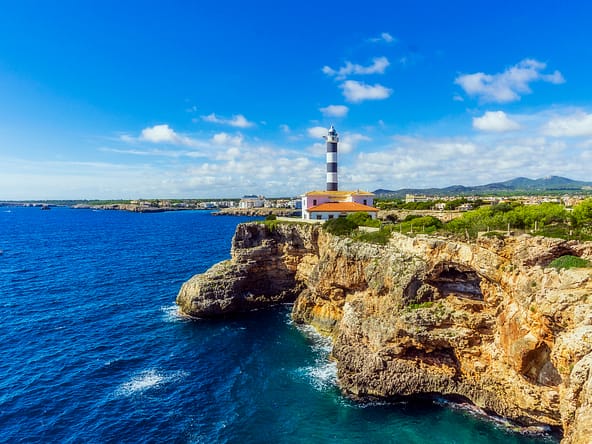UK Millionaire Exodus – Just why is there a surge in British Millionaire’s leaving the UK’s shores and heading to other hotspots such as Spain & Mallorca?
According to newly released data, during the year Labour came to power, one millionaire left Britain every 45 minutes. New World Wealth reported that the number of millionaires leaving the UK surged from 4,200 in 2023 to 10,800 in 2024 (The Brussels Times), making the UK the second-highest country for millionaire departures, with only China seeing a greater outflow. NWW refers to New World Wealth, a global wealth intelligence firm that tracks high-net-worth individuals (HNWIs) and their migration patterns. This means approximately 30 millionaires departed each day—about one every 45 minutes.


The upcoming 2024 UK tax reform aims to abolish the non-dom status starting in April 2025. Under the new rules, long-term UK residents (those living in the country for at least four years) will be taxed on their worldwide income, just like UK citizens. This is a major shift, as previously, non-doms could live in the UK for many years and still pay little or no tax on foreign earnings.
The non-dom policy changes over recent years – before 2024- has already made it more expensive to maintain the status, pushing some wealthy individuals to leave.
The UK’s non-dom tax system, which has existed for nearly 200 years, allows residents with a foreign domicile status to avoid paying taxes on overseas income and capital gains for up to 15 years. CNBC reports that, due to ongoing criticism of this policy, Finance Minister Rachel Reeves announced in her October budget that the policy will be abolished in April 2025. Once the changes take effect, all long-term residents will be subject to inheritance tax on their global assets, including those held in trusts.
However, Reeves also acknowledged concerns from the non-dom community and wealthy investors about the impact of the changes. Speaking at a fringe event at the World Economic Forum in Davos, she announced that the government would introduce an amendment to the Finance Bill aimed at making the temporary repatriation facility more generous. This facility allows non-doms to transfer funds to the UK with reduced tax penalties, effectively encouraging them to bring more money into the British economy rather than move it elsewhere.
The Telegraph reports the UK government’s planned tax changes for non-doms are expected to raise £2.5 billion annually over the next five years, according to the Office for Budget Responsibility. The government further defends the policy as necessary to ensure fairness and fund public services, with the reforms expected to raise £33.8 billion in the next five years. However, industry experts remain skeptical about the long-term impact. The Adam Smith Institute predicts the abolition of the non-dom status could result in 23,000 job losses and a £6.52 billion hit to the UK’s GDP over the next decade. David Hawkins of Foreign Investors for Britain argues that these reforms will harm the economy by driving out investment, while James Austen, tax partner at Collyer Bristow, suggests that the changes may not meaningfully alter the non-dom community’s plans to leave.

Spain, including popular destinations like Mallorca, is expected to experience a significant influx from those joinging the UK Millionaire Exodus in the coming years. UBS’s latest Global Wealth Report forecasts that 500,000 millionaires will leave the UK by 2028, representing a 17% decline in the country’s millionaire population. This trend raises questions about the future of the UK, particularly London, as a global hub for the elite. Meanwhile, other European nations, including Belgium, Germany, Spain, and Italy, are set to see an increase in their millionaire populations, according to the UBS report.
A Place in the Sun survey, released on March 12, 2025, reveals that Spain continues to be the most popular destination for Britons looking to buy property abroad, with 53% of respondents expressing a desire to own a piece of Spanish sunshine, up from 44% in the past 12 months. The survey, marking the launch of the new series, also found that 96% of participants believe that spending more time in the sun would enhance their quality of life, while 87% think it would contribute to a healthier and longer life.
The new tax reforms and laws targeting non-doms, combined with the rise of flexible work arrangements since the COVID-19 pandemic, are reshaping UK migration patterns. As remote work becomes more feasible, many individuals, wealthy or not,are no longer tied to a physical office, enabling them to choose locations that offer a higher quality of life. Brexit concerns and the complexities of living in the UK post-EU membership are also influencing these decisions. People from Northern European countries, particularly the UK, are increasingly seeking destinations that offer not only better weather but also a more peaceful, slower-paced lifestyle. Italy and Spain are becoming top choices due to their appealing climates, more relaxed atmospheres, and welcoming policies toward foreign investment.
The UK Millionaire Exodus underscores a deeper shift in the UK’s economic and political landscape. If the UK continues to lose high-net-worth individuals at this pace, the long-term economic effects could be significant. London, once an undisputed magnet for global wealth, now faces increasing competition from countries that offer tax advantages, political stability, and an improved quality of life.
Ultimately, this exodus is more than just a reaction to tax policy, but a broader realignment in how the wealthy choose to live, work, and invest in a post-Brexit world. As Britain grapples with these changes, the question remains: can it adapt to retain its elite residents, or will Spain, with its attractive residency programs, favorable climate, and growing luxury property market, solidify itself as the definitive haven for the UK’s wealth migration in the years to come?



